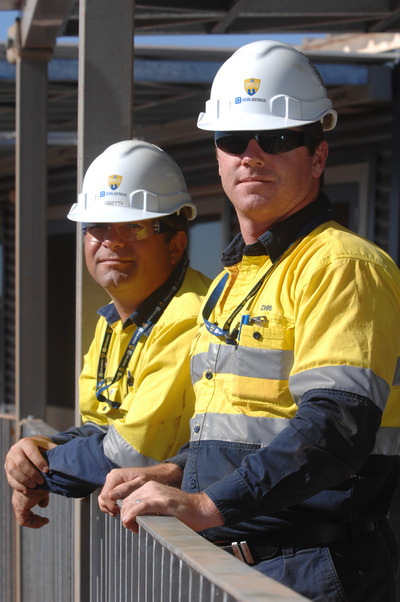Shielding staff from workplace accidents
Monday, 02 April, 2012
Decmil Australia is a listed building and civil construction company founded in 1979. The company has experienced continued growth in the last five years and now employs more than 900 people. As the size of a company’s workforce increased, there was a noticeable rise in workplace incidents. To address this issue and improve workplace safety standards and performance, the company formulated the SHIELD (safety and health in every level at Decmil) initiative in March 2010. The program requires a personal commitment from all individuals at all levels to take ownership for the safety, health and welfare of themselves and their workmates.
The primary objective of the program was to drive the behaviours, attitudes, decisions and actions required of all individuals within the business to achieve a working environment that is free from injury or incident. The purpose was to create a safety culture within the business that accepts nothing less than this objective.
Since the implementation of the program there has been a significant drop in workplace accidents. Total incidents dropped by 35% from 2009 to 2010, and no fatal injuries or lost time injuries were reported in 2010.
The person behind the program is Decmil’s Corporate HSE Manager, Jeremy Knowles. Knowles is behind a number of high-level safety and health initiatives designed to build on the HSE culture within the organisation and drive safety standards across all Decmil worksites.
Managing Director Ray Sputore believes the key to SHIELD’s success lies in the Personal Safety Commitment cards all staff carry with them on site and in the office. “We ask our people to have a photo or image of what matters most to them with their Personal Safety Commitment card with the intention of having that as the real driving motivation to manage not only their own safety but that of their colleagues.”

The program is supported by six key elements under which a number of strategies have been developed, implemented and maintained by the whole business. These elements include: personal commitment and cultural alignment; leadership commitment and mentoring; employee health and welfare; reward and recognition; training and development; consultation, communication and empowerment. The desired personal commitment to the program starts at recruitment and selection with the company’s human resources department short-listing candidates that demonstrate the safety and health values the company expects.
Biannual SHIELD Leadership Summits are held to review the effectiveness of the program with these workshops comprising participants from across the business including: executive; construction and project managers; and identified Decmil SHIELD ‘Natural Leaders’ (elected employee safety representatives).
In October 2011, Decmil bagged the WA WorkSafe award for best workplace safety and health management system in the private sector. The company is now one of the 37 finalists in the 7th annual Safe Work Australia Awards. The winners of the 7th annual Safe Work Australia Awards will be announced at a ceremony to be held at Parliament House, Canberra, on Thursday 26 April 2012.
Contract labour in mining: do savings outweigh safety outcomes?
Australian researchers have analysed decades of research on contract labour in mining, arguing...
Psychosocial risk management: eight trends with tips
Psychosocial risk management has become a central pillar of workplace safety and organisational...
50 in 2024: Victoria's workplace fatalities figures
Transport, construction and agriculture were Victoria's deadliest sectors in 2024, with...










